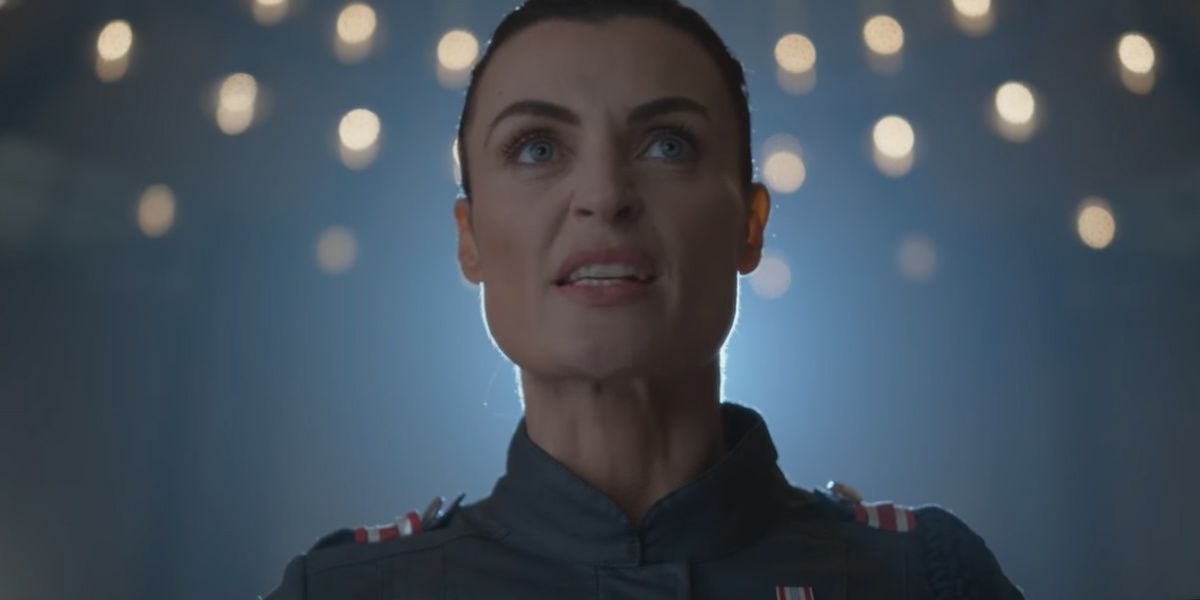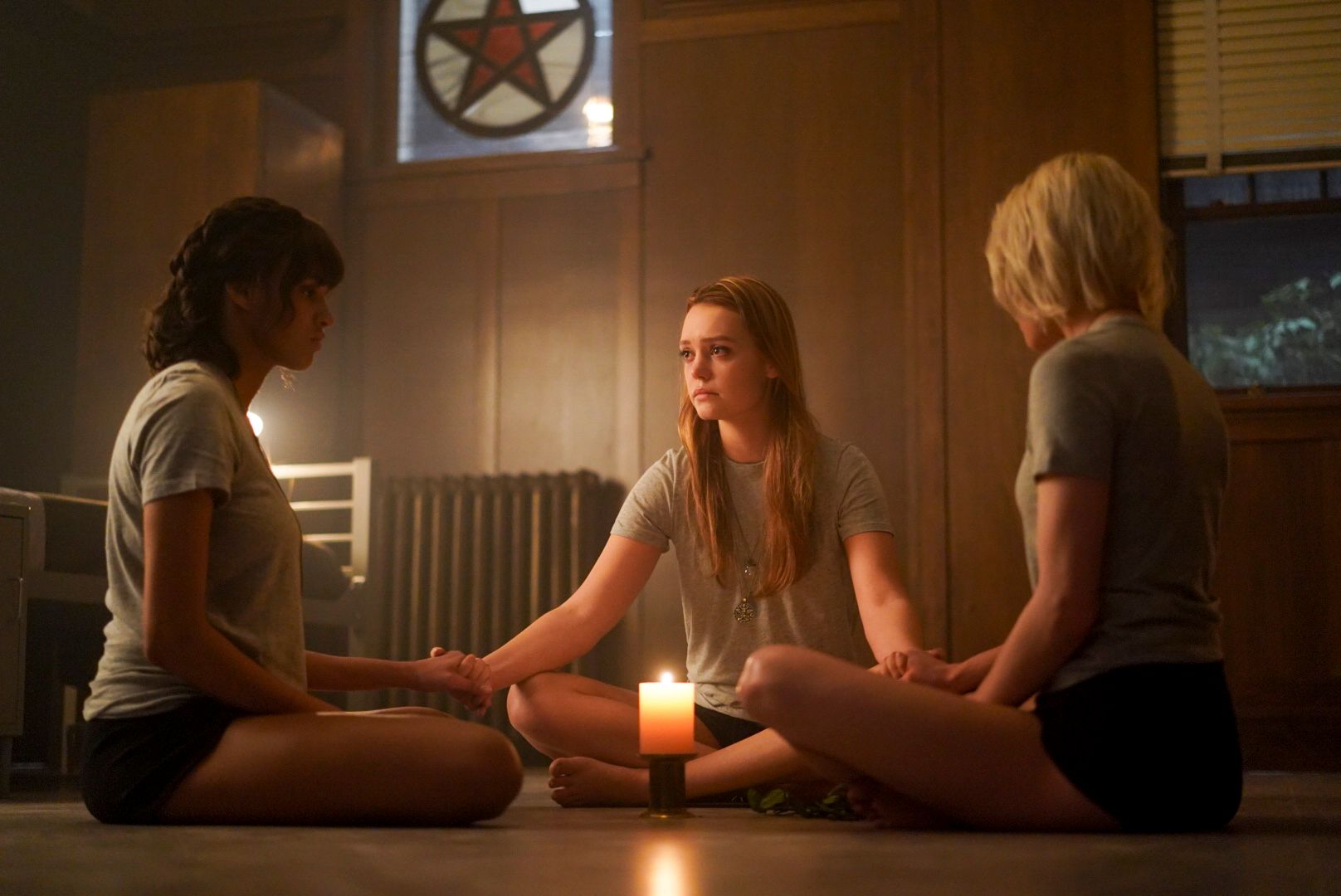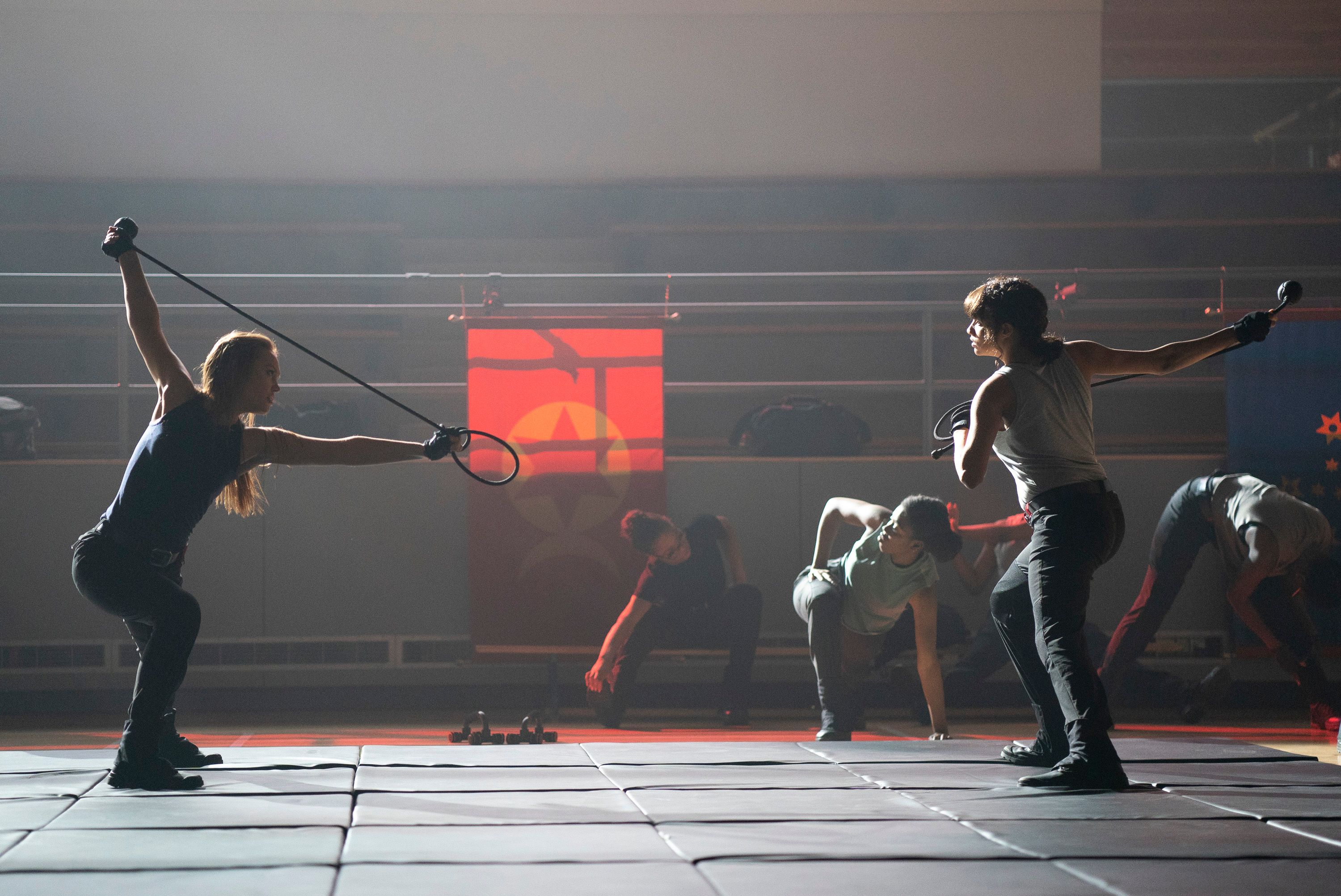The Freeform drama Motherland: Fort Salem opens with a genuinely chilling scene that promises a far creepier show than the creators deliver. At a crowded mall, an ominous balloon rises and then bursts, releasing a magic spell that causes the patrons to calmly climb to a high ledge and throw themselves off. It’s a literal “suicide bomb” detonated by a member of the Spree, a magical terrorist organization that opposes the military conscription of witches by world governments, including the United States. The Spree’s attacks in the first five episodes remain pretty scary, but the rest of Motherland isn’t nearly as effective.
Creator Eliot Laurence (Claws) envisions a world in which the women persecuted during the Salem witch trials of the 1690s were, in fact, practitioners of dark magic. Their leader, Sarah Alder (Lyne Renee), cut a deal with the colonial government for witches to become the official protectors of what was not yet the United States. Cut to 2020, and while much of American history has proceeded in familiar fashion, witches remain the primary military force in the country, giving women a far more respected and prominent place in society. It’s an intriguing bit of alternate history that the creators explore in a somewhat haphazard manner, often dropping fascinating hints about changes in society but rarely following through on their consequences.
Mainly, Motherland is about three young witches entering their first year of basic training at Fort Salem, which is still the central stronghold for witches in America. Once they turn 18, all descendants of witches are obligated to join the military, a high-risk position that leads to a high mortality rate, as there appear to be multiple military frontlines around the world. It’s not entirely clear why that is, since the Spree is presented as a decentralized terrorist organization, and thus not an organized army seeking to conquer territory. That’s just one element of the show’s inconsistent world-building, which attempts to create a sense of global warfare but sets almost all of the action on a school campus.
Fort Salem itself isn’t exactly Hogwarts; it much more closely resembles a military academy, and while the cadets train in spell-casting and other mystical arts, they follow strict rules, train in units and are subject to the harsh oversight of a drill sergeant. Even the three protagonists are familiar character types from military-school stories: Abigail Bellweather (Ashley Nicole Williams) is the hard-driving child of a legendary military family, pressured by her mother, a prominent general, to excel at everything she does. On the other end of the spectrum, Raelle Collar (Taylor Hickson) is the outcast from a poor part of the country (the “Chippewa Cession,” which implies some sort of Native American governance, although it hasn't been explained yet) who’s skeptical of the military and everything it stands for. In the middle is Tally Craven (Jessica Sutton), who declined a deferment (given because her family has suffered so many battlefield losses) and joined up against her mother’s wishes because she’s a true believer.
Predictably, the three don’t get along at first (Abigail and Raelle are especially antagonistic), but after a few episodes, they form an unbreakable bond, supporting each other through the hardships of basic training. The trio’s relationship is less interesting than the sketchy world-building, and it’s hard to get invested in the petty squabbles between Abigail and Raelle or Tally’s swooning over romantic prospects when the Spree is out there constantly committing brutal atrocities (and also seems to have infiltrated Fort Salem itself). This isn’t a snarky, banter-filled teen supernatural show like Buffy the Vampire Slayer, but it’s also not as dark and scary as some of the best Spree scenes suggest it could be.
The witches’ spells mostly involve making weird noises, and the numbered system of “seeds” doesn’t have the same magical appeal as the books and spells in other witch stories. Most of the makeup of the United States seems largely the same, with a few different customs added on (at one point Abigail refers to “my mother and all my fathers”) but never sufficiently fleshed out. The presence of male witch cadets at Fort Salem for the holiday of Beltane is a major storyline for multiple episodes, but their function in the military remains murky. Rather than reimagining the U.S. as a matriarchal society, Laurence and his creative team have just thrown a few token details into a standard military drama.
It’s especially disappointing given the literal tapestry of historical material in the show’s opening credits, which imply a much richer setting than the show is able to depict. As a light-hearted Freeform teen drama, the awkwardly titled Motherland: Fort Salem takes itself much too seriously, but as an expansive piece of supernatural alt-history, it falls far short of its ambitions.
Starring Taylor Hickson, Ashley Nicole Williams, Jessica Sutton, Amalia Holm, Demetria McKinney and Lyne Renee, Motherland: Fort Salem debuts Wednesday, March 18, at 9 p.m. ET/PT on Freeform=.



